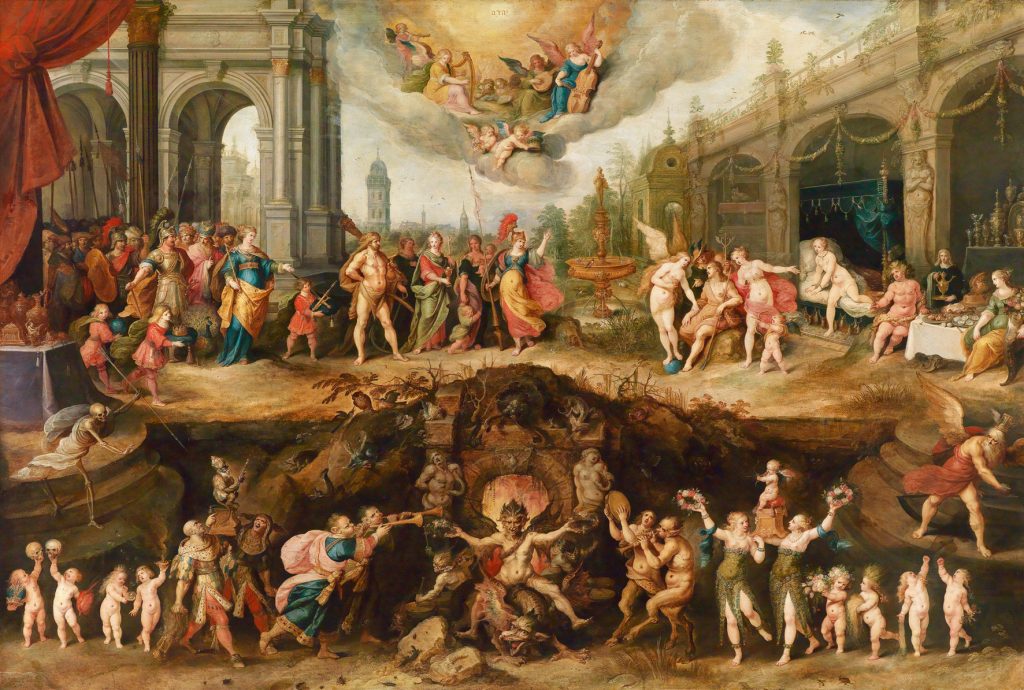
Goals
We’ll seek to understand various new media technologies and topics by exploring both all the amazing things that technology could lead to (Utopia) and all the horrible things that could come from it (Dystopia).
Your group can pick a target year between 5-20 years from now (2029-2044)—far enough out that we’re beyond the obvious and have enough time for social change to accompany technological changes, but not so far out that we’re into the realm of science fiction.
Two new readings to integrate:
Grading (15 points total)
Table experience, 6 points
Create a 5-minute experience for guests to your table, planning for about 3-4 minutes of scripted presentation + 1-2 minutes of Q&A.
- 6: Polished, practiced, and creative / engaging
- 5: Lacking in one or more of the above
- 4: Lacking in two or more of the above
- 3: Coherent, but barely
- 0: Hard to watch
Submission: In class
Photos from previous booths:
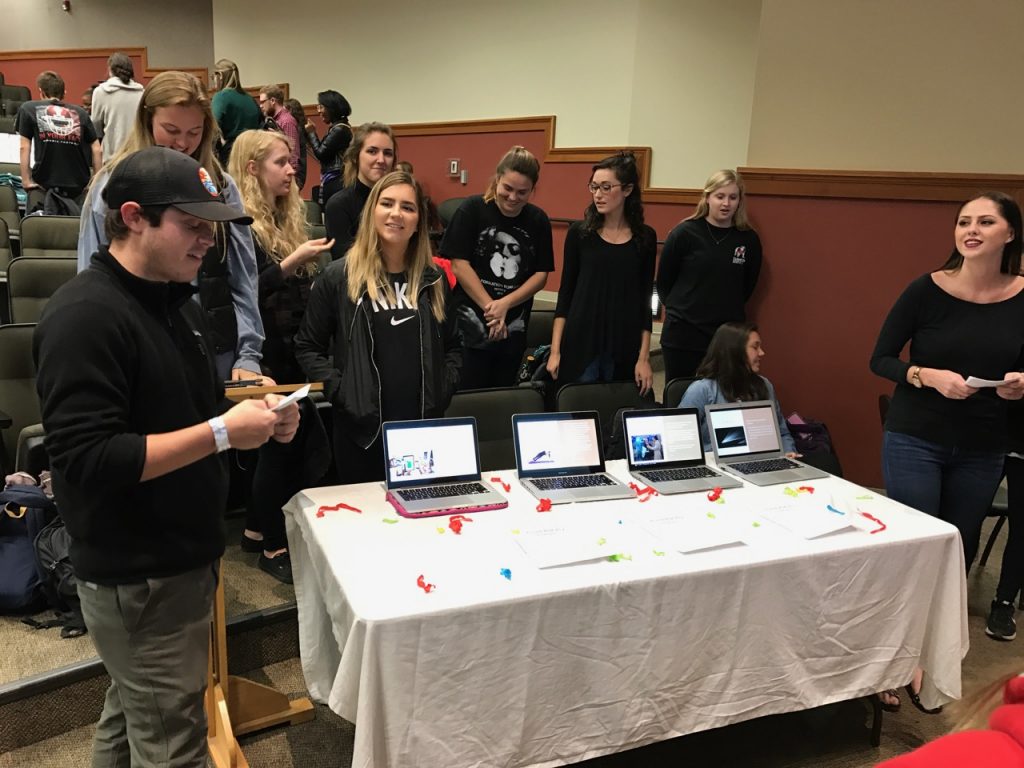
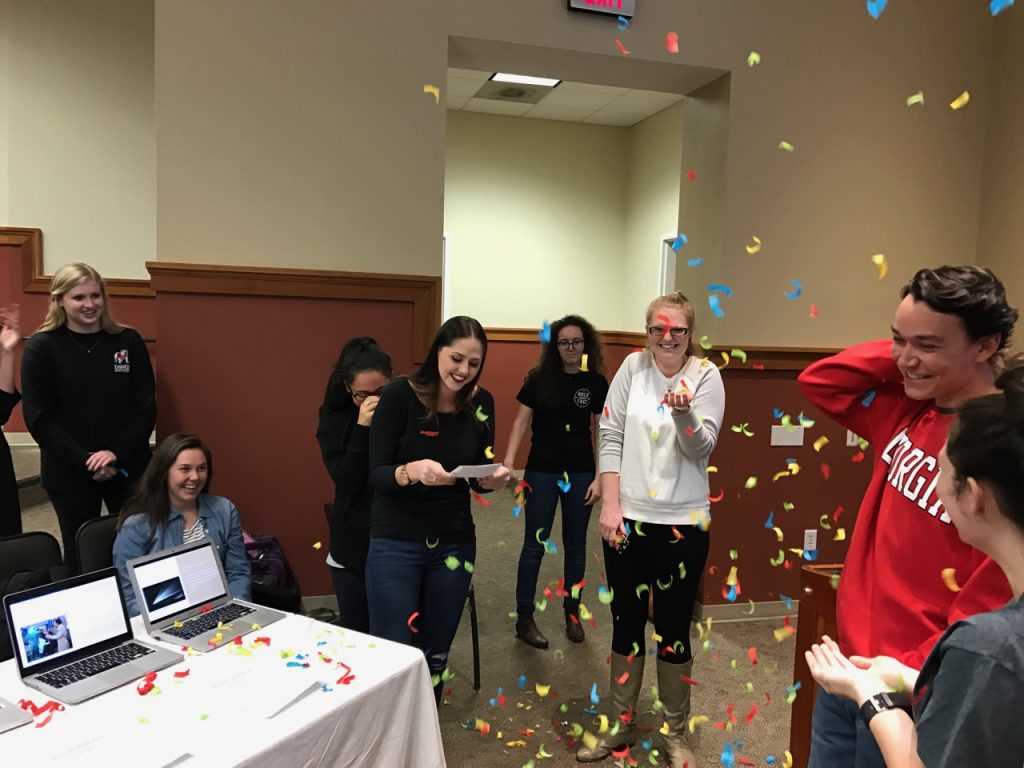
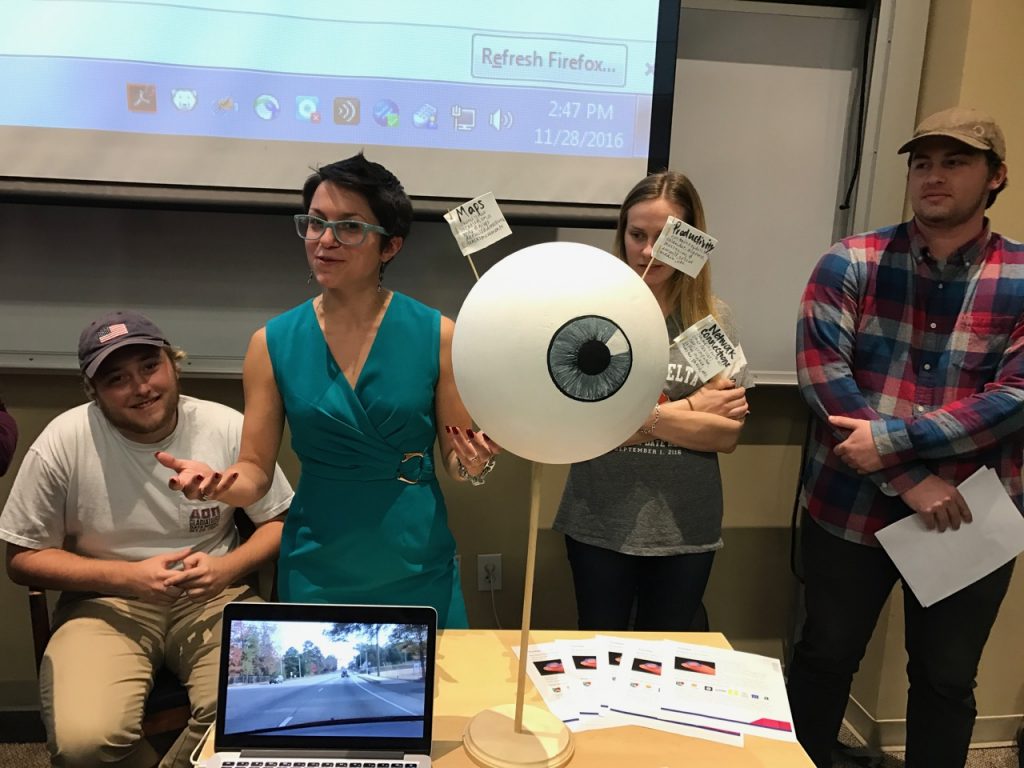
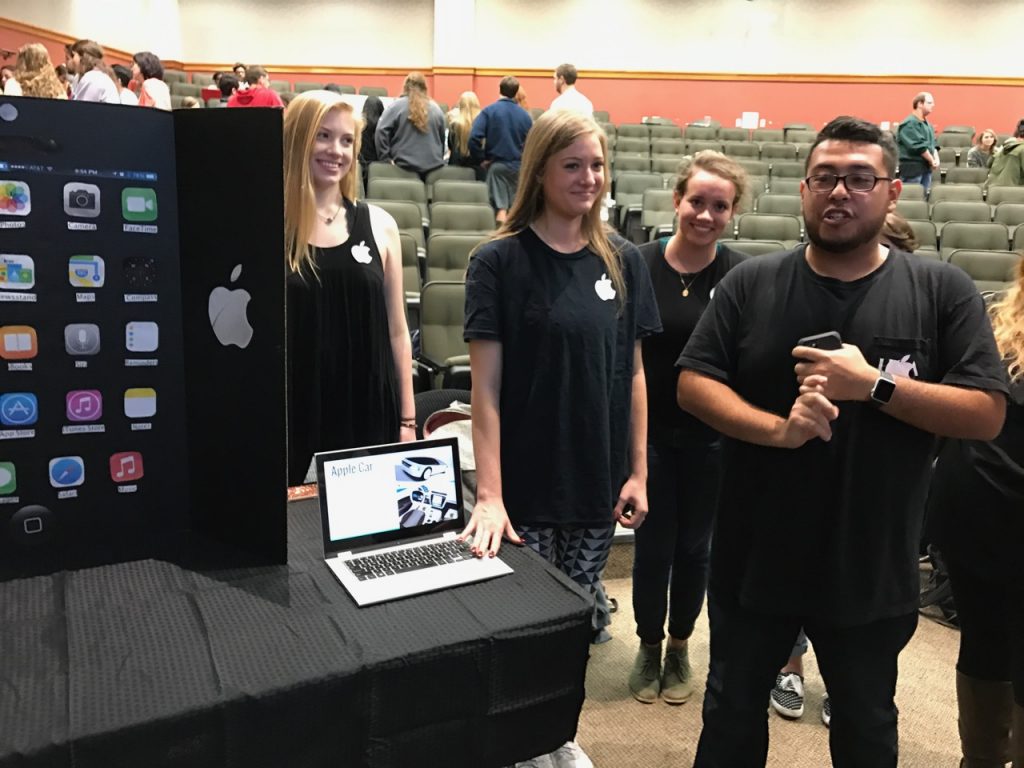
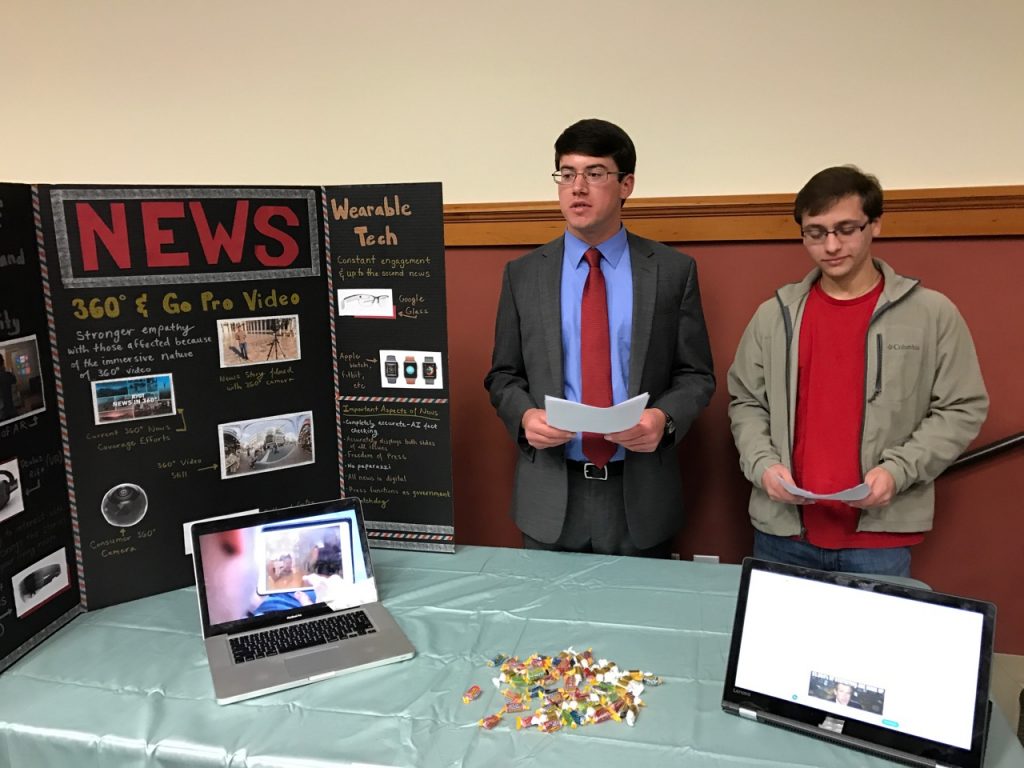
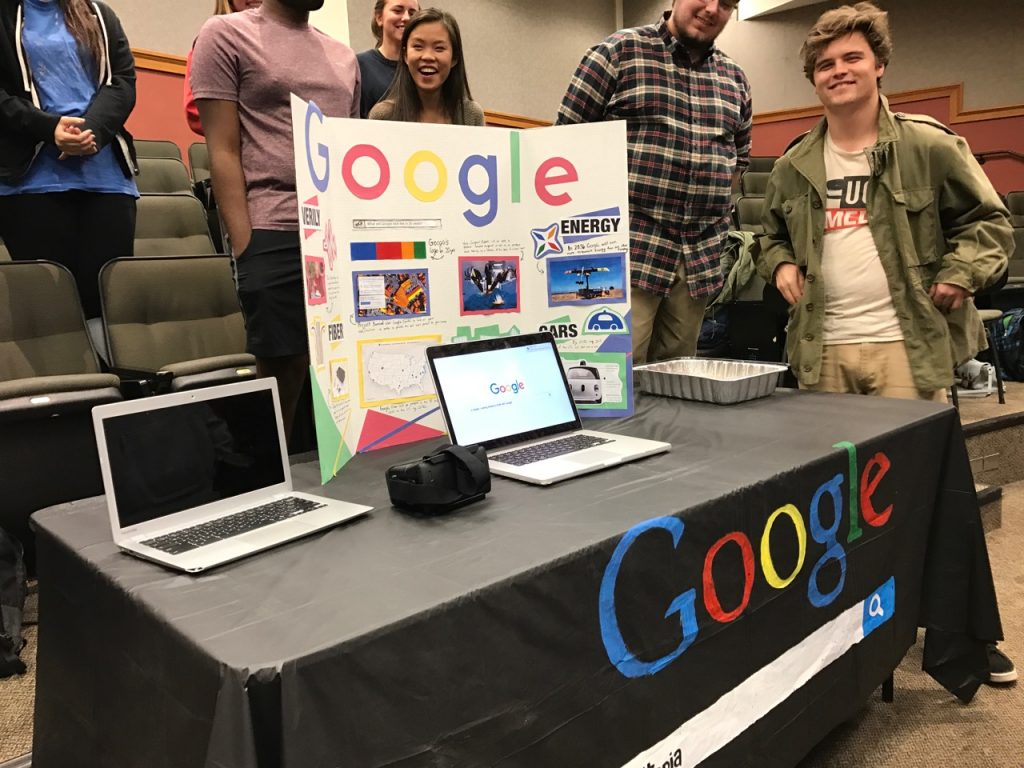
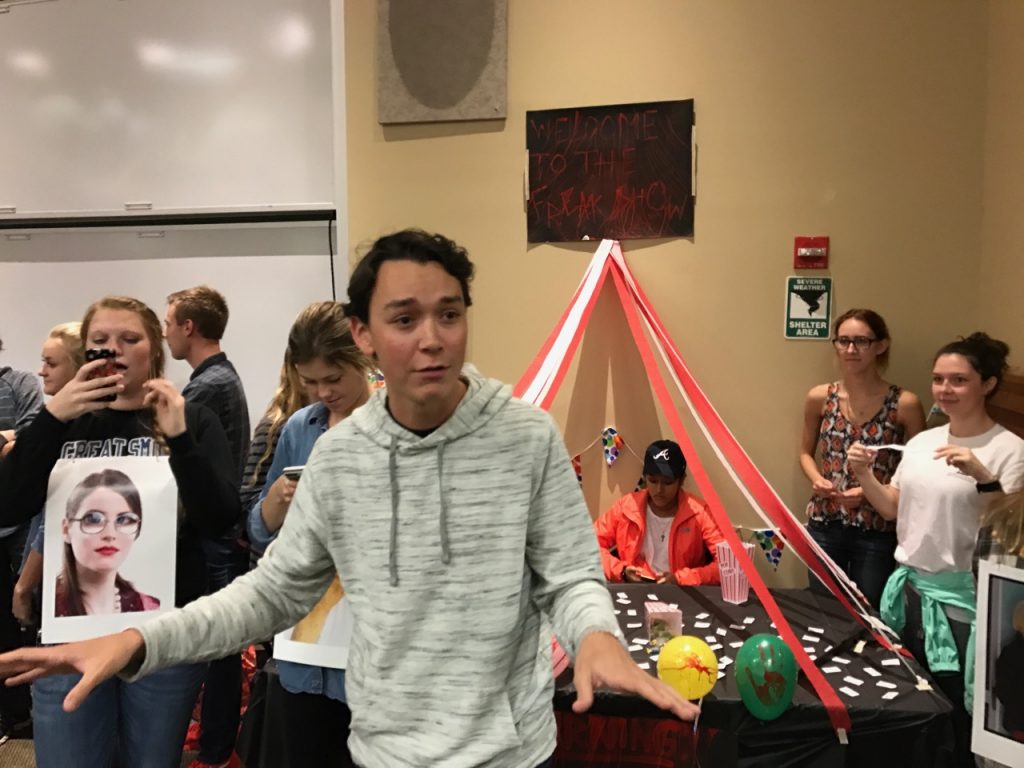
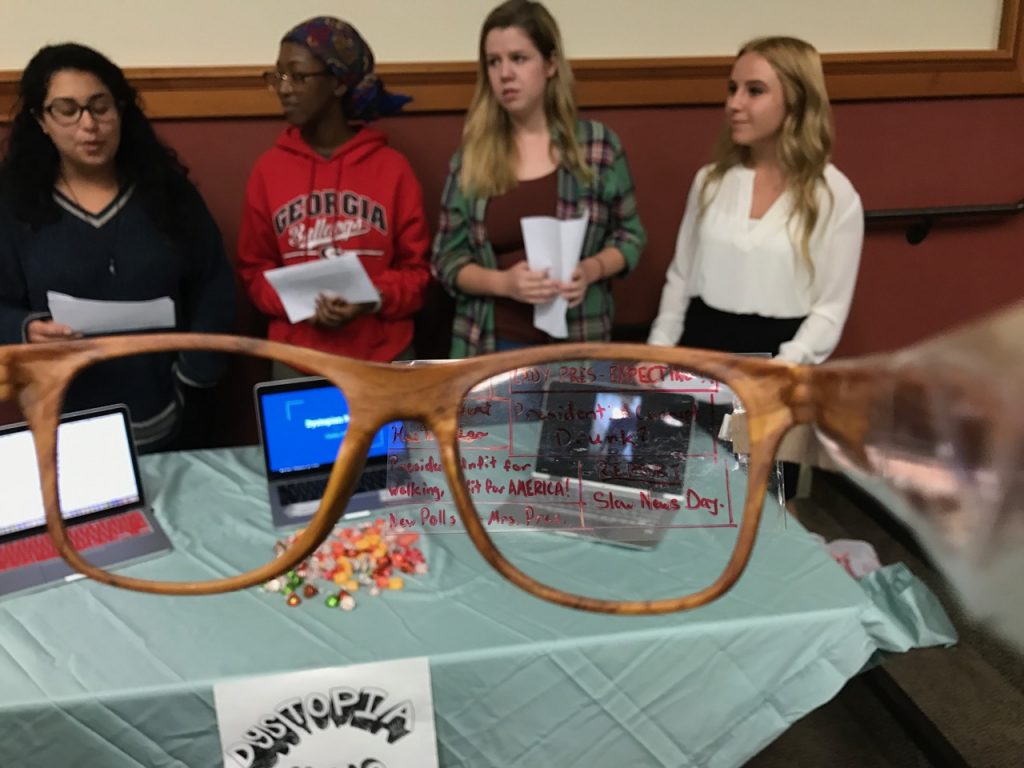
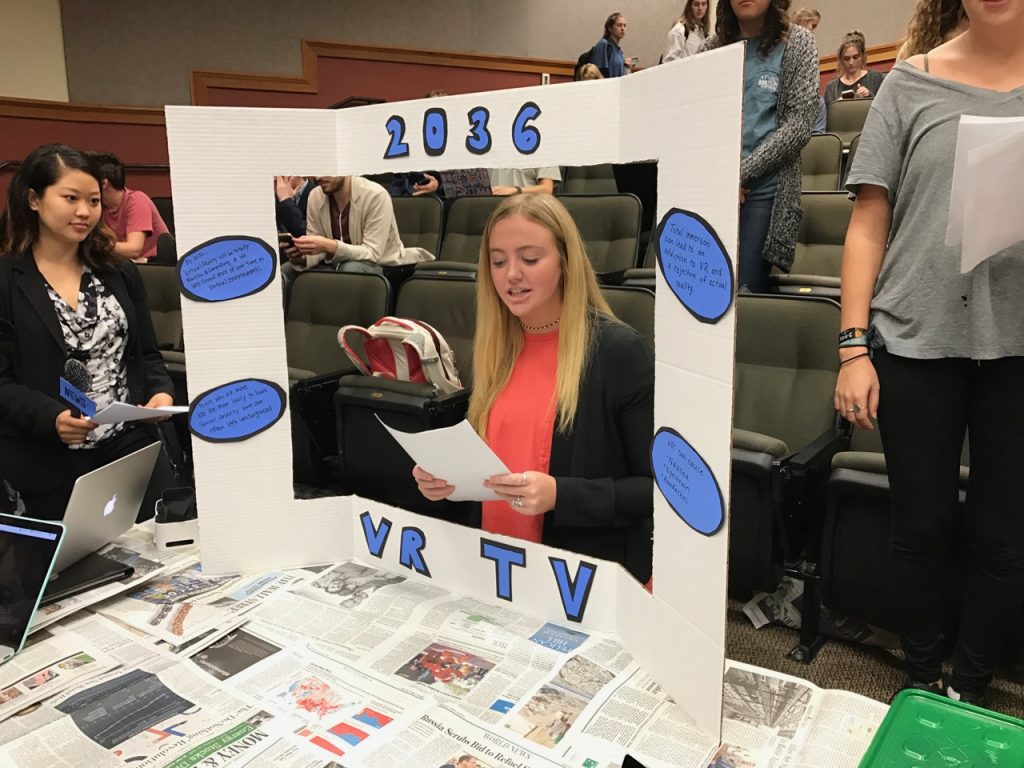
Online artifact, 6 points
Make an online thing (Medium.com post, Google Doc / Slides, etc.) that presents your work in a compelling, polished fashion.
- 6: Super-polished + super-thoughtful
- 5: Still good, but lacking in either polish or thoughtfulness
- 4: Complete, but not terribly polished or thoughtful
- 3: Something’s there, but it’s super rough
- 0: Nothing turned in
Submission: Submit this Google Form once per group: https://forms.gle/2iN4uqqBxJqpoPcr5
Peer evaluations, 3 points
Everyone within your group will complete a brief online peer evaluation of everyone else in your group.
- 3: All good, no complaints
- 1-2: Some issues, but still participated
- 0: Who were they again?
Submission: https://forms.gle/zEup3Znk2UPZtap47
Criteria for success
Successful projects will, in both the table experience and the online artifact, demonstrate:
- Thorough research1 into the current state and future trajectory of your selected topic
- Clear thinking about the future of your topic supported by your research alongside information and concepts from class
- Analysis from multiple perspectives (technological, social, cultural, ethical, economic, etc.)
- Integration between all portions of the project2
- A sufficient level of polish3
- A sense of fun, play, and creativity
Group roles
You’ll be working in a group of 10-12 (half your discussion group). The following are suggested—but not required—roles. How you divvy up the work is up to you.
Project coordinator: Works with everyone in the group to coordinate everything that happens into a single, cohesive project.
Research coordinator: Working with project coordinator, divvies up, coordinates, and pulls together research
Researcher: Carries out and reports back project research
Online thing coordinator: Responsible for ultimate success of the online thing. Coordinates research, original thought, and more.
Online thing editor: Responsible for final quality of written portion of online thing.
Online thing writer: There might be more than one of these. Responsible for writing a portion of the online thing.
Table creative director: Responsible for pulling together the entirety of the table experience.
Table stage director: Responsible for setting up the look, feel, etc. of the table.
Table presenter: Actually presents something at the table.
Director of fun: Adds fun to all of the above.
Timeline
Monday, 11/4: Project overview
Wednesday, 11/6: Topic selected, in-class work day
Friday, 11/8: Break-out work day
Friday, 11/15: Breakout session work day – rough draft due
About the rough draft:
The rough draft is ungraded but is designed to provide some lightweight accountability. The goal is to have everything for your project done, even if done poorly—every paragraph written / slide created / video shot attempted / rough edited, etc. You'll submit your drafts through this Google Form.Monday, 11/18: Final work day
Wednesday 11/20: Utopia / Dystopia Day
Friday, 11/22: Project debrief
Potential topics
Apple
Smartphones
Augmented / virtual reality
Google
AI (Artificial Intelligence) + ML (Machine Learning)
Meta + social media
Startups + Unicorns
News
Amazon (+ commerce)
Voice + smart home / Internet of Things
Selected topics
1:50 Beth Anne:
3:00 Beth Anne:
1:50 Hope:
3:00 Hope:
1:50 Peyton:
Using both hyperlinked sources and signal phrases↩
I.e., the table experience and online artifact read as an integrated whole, not disparate elements duct taped together at the last minute↩
The table experience has clearly been rehearsed and considered as a whole, while the online artifact has been edited, consistently designed, etc.↩